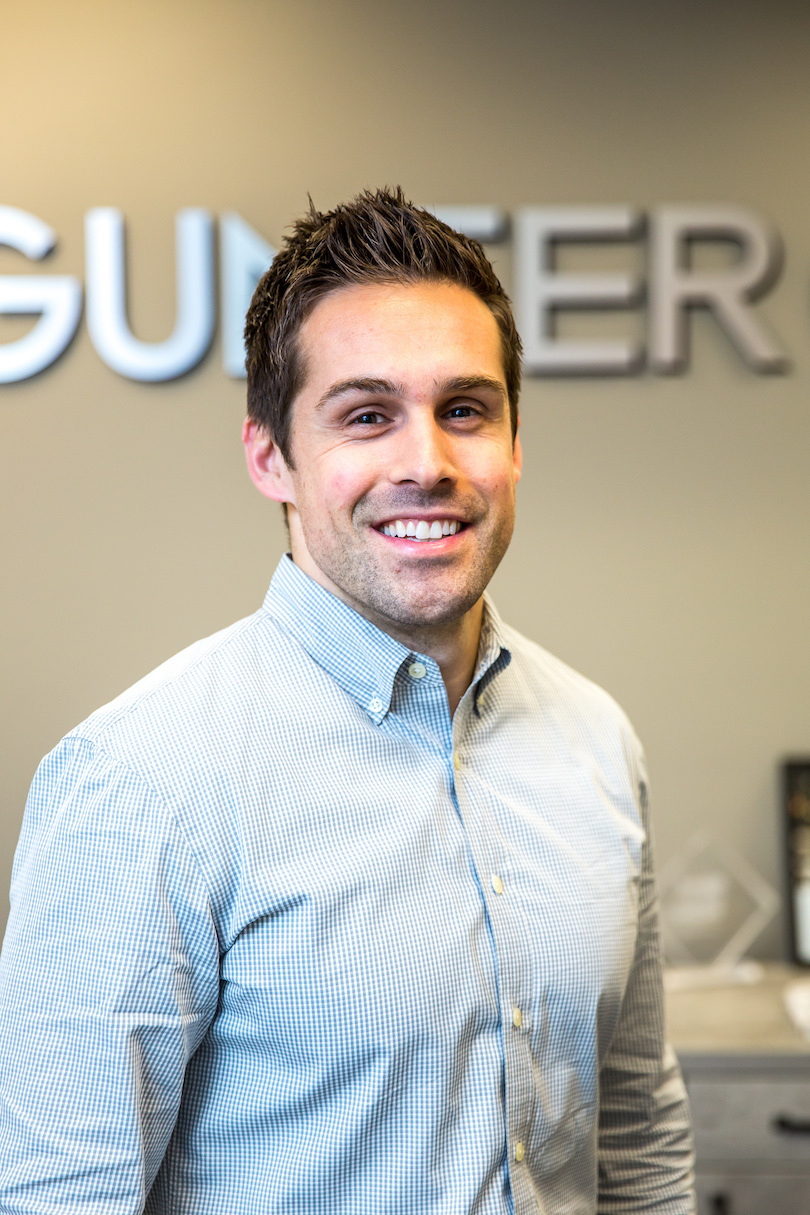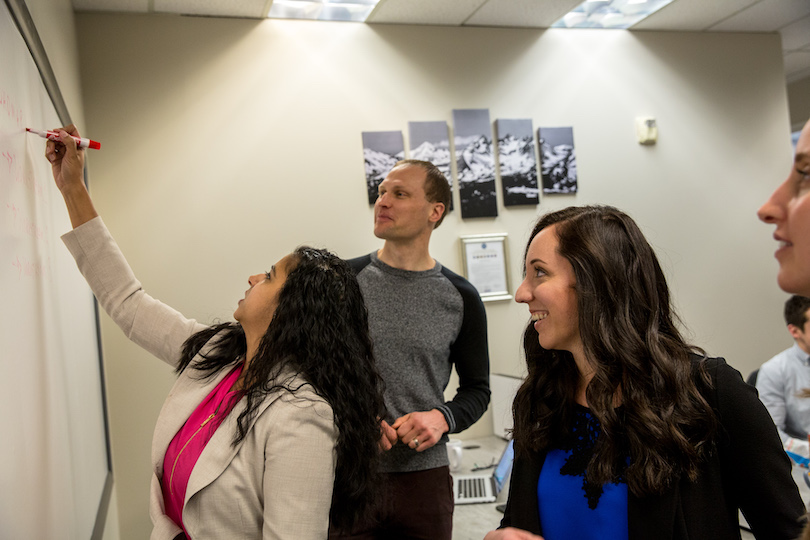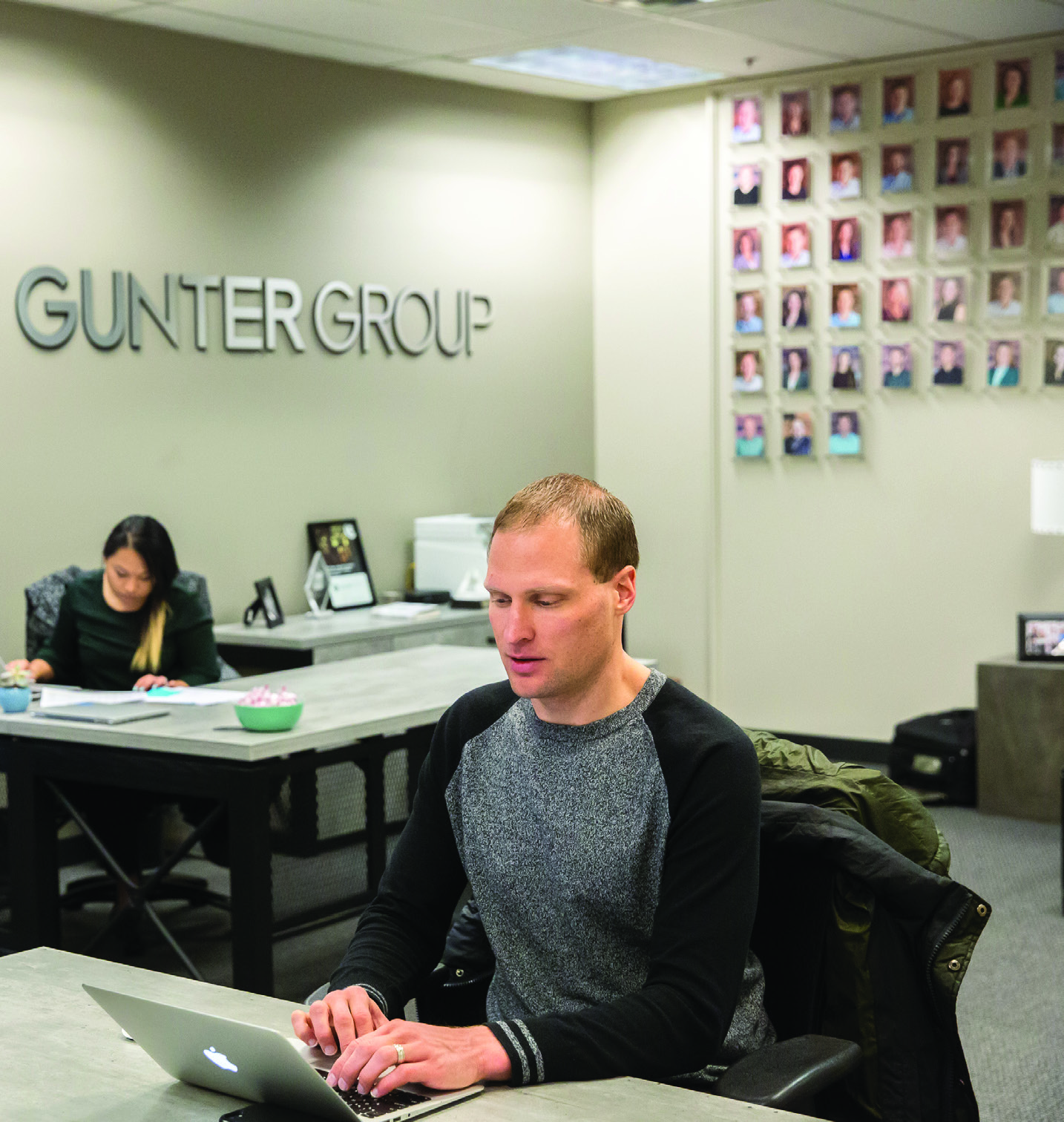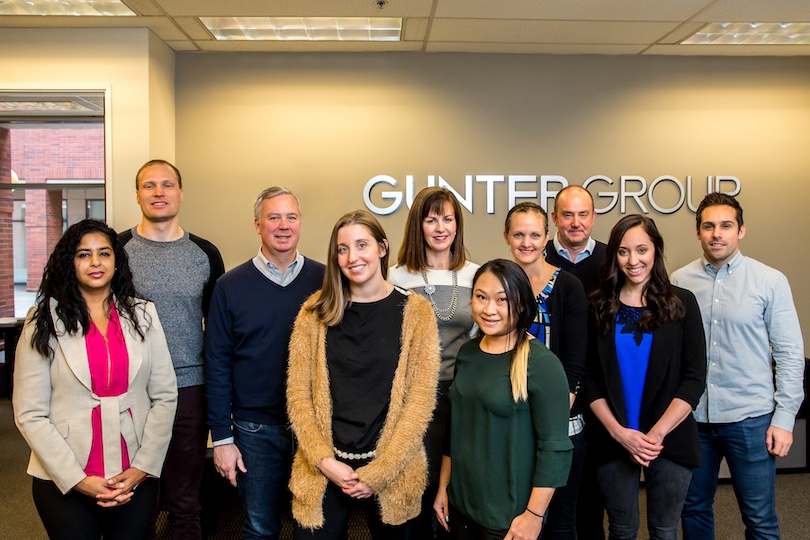Brand Story – Growth is a by-product of The Gunter Group’s investment in its people.
Matt Bader had just returned from a tour in Iraq while in the Air Force and was looking for work.He was having trouble finding a career that leveraged his skills and experience, an issue many veterans face when returning from service.
He soon met Mike Gunter. It was 2011—Mike had just opened his consulting firm and hadn’t yet made his first hire. Mike asked Bader to lunch.
As Bader described his work in the Air Force, Mike saw an immediate fit. “As soon as we sat down, I just knew he had it,” said Mike, who’d worked in consulting for almost 25 years. “As consultants, we solve problems. What Matt described was essentially high-level project management and problem solving. He just didn’t call it that—he was using military terminology.”
Seven years later, Bader is a Principal Consultant at The Gunter Group. He went from zero consulting experience to becoming a strategic advisor for the firm’s major clients—some of whom have upwards of 30,000 employees. And now, he is taking on the role of Market Leader for the firm’s Portland team.
 Matt Bader Principal Consultant at The Gunter Group
Matt Bader Principal Consultant at The Gunter Group
Bader’s journey is a reflection of The Gunter Group’s overall growth; the company now has over 40 employees with offices in Portland, Bend, and Reno, NV. And similar to Bader, many consultants are veterans. “You have to approach consulting with a sense of service,” said Mike. “People with a military background understand service tremendously. And they know how to lead people in complex situations.”
Ashleigh Gunter joined the firm in 2014 as the other Partner in The Gunter Group. Before founding and building the firm, Mike and Ashleigh had over 50 years of combined consulting experience (they met while working at Deloitte Consulting). They loved the work but were less fond of the typical consultant lifestyle and its incessant travel. Upon opening The Gunter Group, they set out to create a business consulting firm that was unique.
For one, seldom do their hires come from a typical consulting background. Looking at their team bios, you’ll see experience in philosophy, ecology, even anthropology. “We have a non-traditional hiring approach. We believe certain characteristics transcend background,” said Ashleigh. “Once we see specific traits in someone, we’ll take a chance on them.”

Boiled down, those characteristics are: intellectual horsepower, comfort in ambiguity, ability to collaborate, commitment to integrity, and high emotional intelligence. “Finding people who can do the work is easy,” said Ashleigh. “But finding people with those traits? And who can connect with a multitude of personalities? That’s rare—but it makes for an amazing consultant.”
Beyond those characteristics, The Gunter Group seeks out one additional trait: a passion for serving the local community. A majority of employees are actively involved with non-profits (Bader founded Checking for Charity–a hockey tournament nonprofit—as well as Vetwork PDX—a networking group for veterans; Ashleigh sits on the board at the Dougy Center, which serves grieving children). The company often donates to charities (Gunter Group made Portland Business Journal’s “Most Generous Corporate Philanthropists” in 2018) and performs pro-bono work for cause-driven organizations.
Their “non-traditional approach” has paid positive dividends. The Gunter Group made Portland Business Journal’s “100 Fastest Growing Private Companies” in 2016. Many major clients have remained clients since their first project. But more important to the company, they’ve made Oregon Business Magazine’s “100 Best Companies to Work For in Oregon” the last five years and have never lost an employee to a competitor. And their proudest achievement? In a Gallup survey on employee engagement, they ranked in the 99th percentile of companies.
According to Ashleigh, many people like coming to work. But The Gunter Group’s goal has always gone beyond satisfaction; they want their consultants to truly care about the outcome of the business. The question is: How does a company cultivate that level of engagement?

Fundamentally, The Gunter Group sees itself as a platform for employee growth. While the company has a sweet spot—project management and business analysis—its capabilities evolve depending on who’s working for them. Meaning, if an employee discovers a new passion or area of interest, he or she speaks with Mike and Ashleigh to see if it can complement the business. “If it fits, then we find a way to work it into our services,” said Mike. Thus, when people ask where the company will be in five years, Mike often says: “Ask our consultants.”
Yet cultivating engagement goes beyond just professional growth. For example, Mike and Ashleigh will send a bottle of champagne for an employee’s special anniversary. One time, they sent a cleaning service to a consultant’s house because she was overloaded with responsibilities. By investing so deeply into their relationships, Mike and Ashleigh have tapped into the essence of engagement: You get people to care by caring about them first. “This isn’t about creating an empire—it’s about our people,” said Ashleigh. “Our growth is just the outcome of how we treat them.
Brand stories are paid content articles that allow Oregon Business advertisers to share news about their organizations and engage with readers on business and public policy issues. The stories are produced in house by the Oregon Business marketing department. For more information, contact associate publisher Courtney Kutzman.




